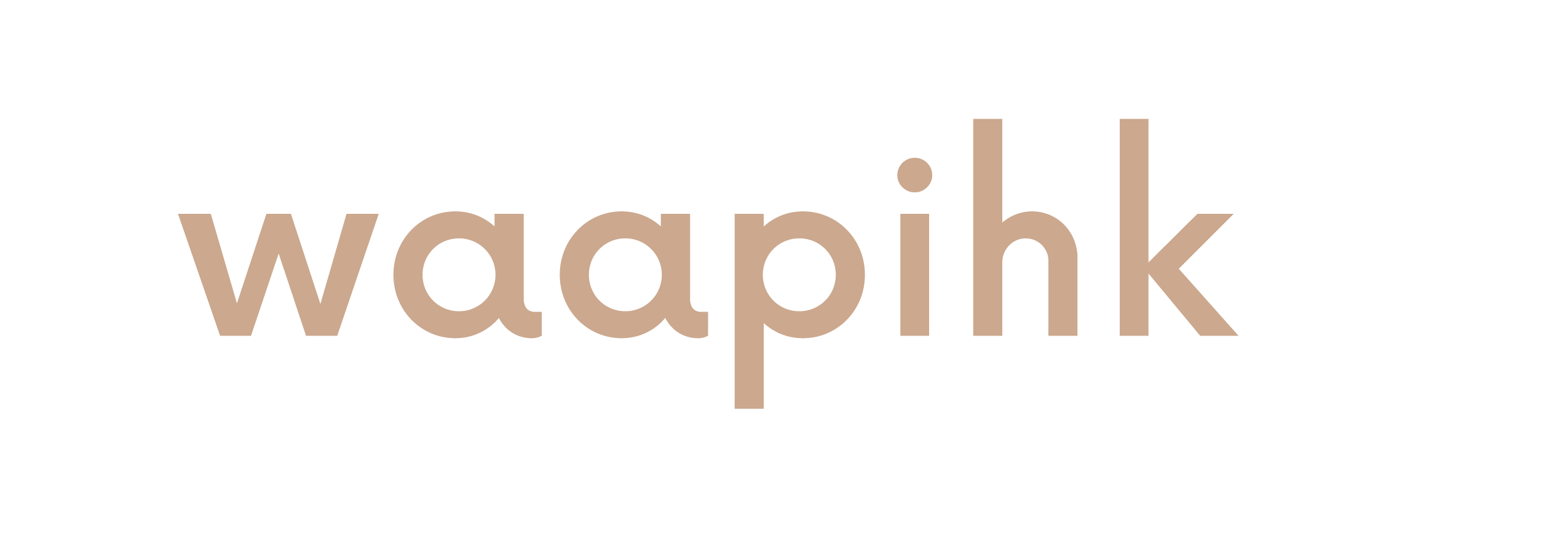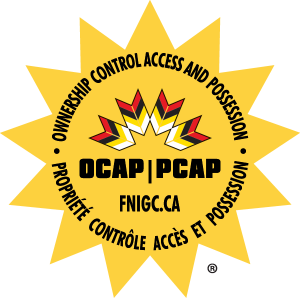Introduction
First Nations Principles of ownership, control, access, and possession (OCAP®) are the de facto ethical standard for research involving First Nations data. These principles cover the collection, use, and management of First Nations data generally. Each principle can be described as follows.
- Ownership: A First Nation collectively owns their own community information in the same way an individual owns their personal information.
- Control: First Nations and their mandated representative bodies can seek control over all aspects of research and information management process which impact them. This control may include all stages of a research project, from beginning to end. This extends to resources and review processes, the planning process, and management of information.
- Access: First Nations must have access to data and information about themselves, regardless of whether that data is currently held. This also entails the right of First Nations and their mandated entities to manage and make decisions regarding access to their collective community information.
- Possession: In contrast to ownership, which describes the relationship between a people and their information in principle, possession or stewardship refers to the concrete physical control of data. Possession is the means through which ownership is asserted and protected.
The Need for OCAP®
OCAP® was developed as a response to persistent issues that occurred when non-First Nations researchers and institutions used, collected, and managed the data of First Nations communities. OCAP® Principles recognize that research presents benefits as well as harms to a community. First Nations themselves are best situated to know how to balance these harms and benefits, including how to minimize harms. There are many cases highlighting how problematic the lack of First Nations self-governance over data can be.
For example, the Barrow Alcohol Study researched alcohol use in an Alaskan Indigenous community in the 1970s. Out-of-state researchers released their negative findings in a press conference at their home university in Philadelphia, Pennsylvania. This publicity led to stigma towards Indigenous people from others in the municipality of Barrow (now Utqiagvik) and nearby Alaskan communities. It further led to the devaluing of Barrow’s Standard & Poor bonding rating, which had long-term negative effects on the community.
The Havasupai Tribe in Arizona approved a diabetes study (the Havasupai Tribe Diabetes Study) in the 1990s that involved analysis of genetic materials by Arizona State University researchers. However, the data was later used for non-approved uses in research publications on inbreeding, migration, and schizophrenia.
Through the Non-Insured Health Benefits (NIHB) database the Government of Canada holds an enormous amount of information regarding First Nations citizens using health services and goods, such as prescription drugs, medical transportation, and dental care. In 2001, Canada started releasing comprehensive pharmacy claims information from this database to Borgan Inc., a health consulting firm that offers NIHB data for sale to pharmaceutical firms for their own use. Canada removed personal identifying information, but community identifying information remained in the data sold to Borgan Inc. Canada did not inform First Nations of this commercial use of their data until 2007. The government justified this sale on the grounds that privacy concerns were remedied by the removal of personal identifiers and Borgan Inc. could have obtained the information through an Access to Information and Privacy Act (ATIP) request. Government decision-makers appear to not realize that First Nations had a stake in the commercial use of their own community data.
Development of OCAP®
What would become OCAP® grew out of work around the First Nations Regional Health Survey (RHS). This survey was launched following a mandate from the Assembly of First Nations Chiefs Committee on Health in 1996 to conduct such a survey every four years. Longitudinal health surveys launched by the Government of Canada did not include First Nations living on-reserve and in northern First Nation communities. The RHS, in part, aimed to address these data gaps while also collecting information of specific importance to First Nations. The pilot RHS included Inuit, but subsequent surveys do not.
Health Canada was a partner in the early years of the RHS, but it was recognized that the department lacked the trust credentials and capacity to properly carry out the governance of RHS data. Principles and practices were applied to the RHS data that would later become the foundation of OCAP®. These included intellectual property and full ownership of data by First Nations, First Nations stewardship of data, and providing access to the federal government to this data through a limited use license. In 2006 the Harvard Project on American Indian Economic Development published an independent review of the RHS. It concluded the following:
“Compared to other national surveys of Indigenous people from around the world, the 2002/2003 RHS was unique in First Nations ownership of the research process, its explicit incorporation of First Nations values into the research design and in the intensive collaborative engagement of First Nations people and their representatives at each stage of the research process. All of this was accomplished under considerable resource constraints.”
-Review of the First Nations Regional Longitudinal Health Survey (RHS), 2002-2003
The data governance work of the RHS eventually led to the establishment of the First Nations Information Governance Centre (FNIGC) in 2010. This organization aims to build capacity and provide credible and relevant information to First Nations while respecting First Nations’ self-determination in research in true compliance with the First Nations Principles of OCAP®. The Centre has ten regional organization members that guide the FNIGC and vote on decisions.
The FNIGC is crucial in providing education and advocacy over OCAP®. In 2012, the Centre trademarked OCAP®. This was done due to concerns about misuse and misrepresentation of OCAP® principles. Trademarking was an effective way to protect OCAP® in a way that academia, government, and general society would recognize. In 2015, the Centre was granted a registered trademark for OCAP®.
Considerations to Implementing OCAP®
The best way to achieve OCAP® is for First Nations and First Nations-mandated organizations to be stewards of their own data. This fosters ownership, control, and access based on physical possession of data. It is important to consider capacity for holding and managing data. Capacity-building is an important part of implementing and realizing OCAP® principles.
Many First Nations lack the technical expertise and capacity to store their own community health data at present. This has led to the outside entities acting as data stewards that will hold, store, and sometimes even analyze or manage data as First Nations and First Nations controlled entities develop their data governance infrastructure. It is important that First Nations retain control over the information through a data-sharing agreement with the steward and that the entity chosen as steward is not subject to federal Access to Information and Privacy or provincial Freedom of Information and Protection of Privacy Act requests.
Effective implementation of OCAP® principles requires non-First Nations governments and academic institutions to respect and recognize First Nations control and ownership of their community data. Achieving data governance frameworks and partnerships that respect OCAP® takes effort and collaboration, but is essential for any research involving First Nations.
Conclusion
The Principles of OCAP® stand as a vital framework to ensure research involving First Nations data is ethical, respectful, and rooted in self-determination. By asserting ownership, control, access, and possession, First Nations reclaim authority over information that has too often been misused or exploited. While challenges remain in building capacity and ensuring full implementation, OCAP® offers a clear path forward for data governance that protects communities, strengthens trust, and advances Indigenous-led research. Respecting OCAP® is not only an ethical responsibility; it is essential for Reconciliation and for building equitable relationships in research and beyond.











Share the article